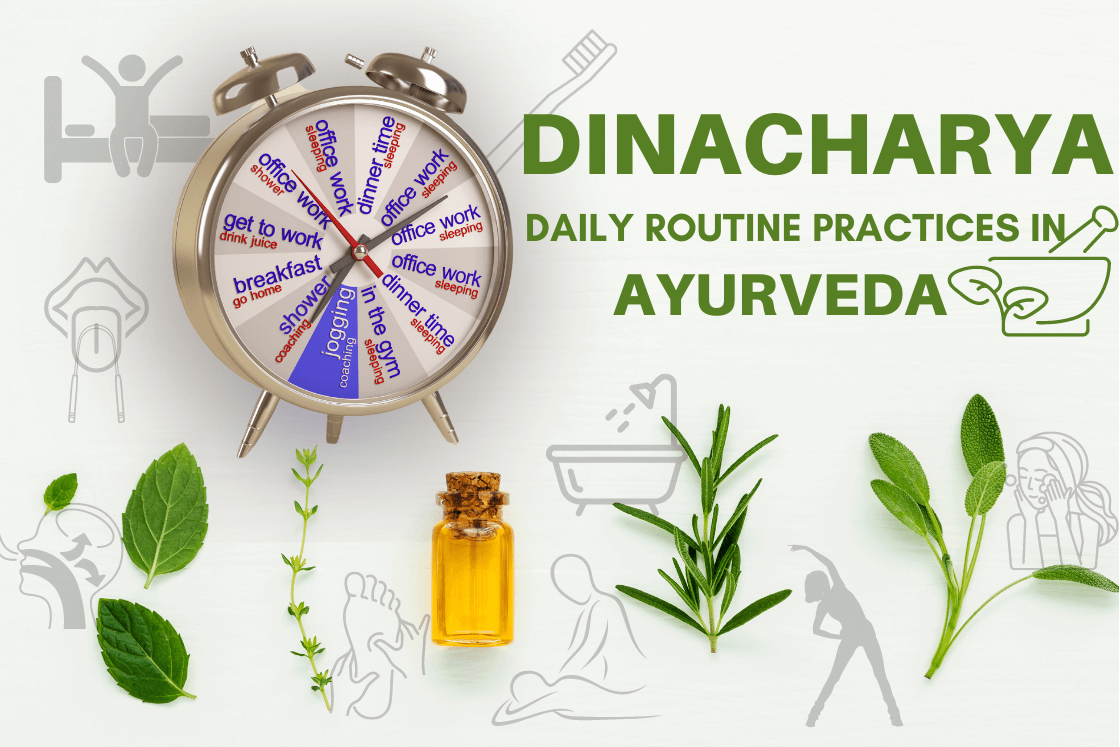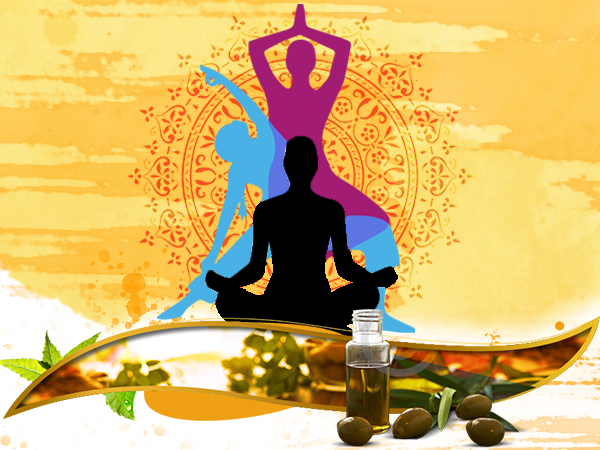In today's fast-paced world, we often find ourselves consumed by work and left with little time to focus on our physical, mental, emotional, and spiritual well-being. However, our ancient wisdom, Ayurveda, emphasizes the importance of maintaining and promoting health through lifestyle and dietary regimens.
One of the key daily routines in Ayurveda is Dinacharya, which promotes self-care and helps restore balance in the tridosha - the energies in the body - vata, pitta, and kapha. By creating healthy routines for ourselves, we can improve our productivity, creativity, happiness, and even our careers.
Dinacharya consists of two phases - the Active phase and the Resting phase. The Active phase runs from 6 am to 6 pm, while the Resting phase runs from 6 pm to 6 am. According to dosha predominance, the time from 6 to 10 am and pm (dawn and dusk) is Kapha time (love and compassion), 10 am to 2 pm (midday and midnight) is Pitta time (metabolism, immunity, and transformation), and 2 to 6 pm (early evening and early morning) is Vata time (movement and energy).
Waking up early, before 6 am, is essential in Ayurveda. This is the time when freshness and peace nourish your body, mind, and soul. Vata is the chief controller of the mind and sense organs, and when in balance, perception of sense organs increases, and the mind functions properly.
Having a bowel movement first thing in the morning is a sign of good health, and sipping two glasses of lukewarm water helps stimulate the intestines and eliminate toxins from the body. Clean your teeth with the help of an herbal stick or fluoride-free toothpaste containing neem, babool, and khadira, according to your body type.
Scraping your tongue with a copper or steel tongue scraper and performing Gandush (oil pulling) with sesame, coconut, or mustard oil (according to your body type and season) are essential for oral hygiene and pacifying your Kapha dosha.
Maintaining good oral hygiene is crucial for overall health, and incorporating oil pulling into your routine can offer a range of benefits. This practice not only strengthens your teeth, jaw, and gums, but also clears your throat, enhances your sense of taste, eliminates bad breath, and even improves vision. Furthermore, these activities have the added benefit of pacifying the Kapha dosha, which helps to balance the body and promote well-being. To achieve optimal results, consider using sesame oil, which is rich in antibacterial, rejuvenating, and nourishing properties, making it an excellent choice for year-round use.
Abhyang (massage) not only nourishes your skin but has deeper benefits too. While it's not possible to apply oil to the whole body every day, massaging the foot, head, and legs every day promotes healthy circulation, prevents aging, calms the nervous system, soothes the skin, and increases stamina and muscle tone.
Pouring oil in the ear helps activate vital parts and strengthens the muscles of the neck and shoulder (useful for those who work with computers). Nasya (pouring oil in the nose) helps sharpen your memory, clears your sinuses, and lubricates your nasal mucosa.
Exercise is essential and involves movement of the body, preparing it for your regular workout throughout the day, burning cellular toxins, and making your body flexible, smooth, and light while building your stamina. Always choose exercises that strengthen your abdominal muscles because they kindle your digestive fire, which is important for the nourishment of your body.
Udwartan (scrubbing your body with dry powder) removes dead skin, stimulates tactile nerves, and enhances circulation.
A lukewarm bath relaxes tense muscles, removes sweat and dirt from the skin, reduces heat, and opens strotas (channels) above the neck. Always use normal water and never use warm water.
Self-enhancing practices, such as pranayama, meditation, yoga, and mantra chanting, can be practiced for 15 to 20 minutes. These practices increase satva guna, reduce anxiety, give confidence, and change your attitude towards
Breaking the fast" in the morning is an essential step in preparing the body for the biggest meal of the day. It is recommended to indulge in a light, warm, and nutritious meal that can be freshly prepared, such as porridge, stewed fruits, or different types of chillas.
Moving on to lunch, it is best to consume it between the hours of 10 to 2, ideally around noon when our digestive fire is at its strongest. A balanced meal should consist of two types of vegetables, with one being a green leafy vegetable, a lentil or paneer dish, chapati, and buttermilk. A light walk after lunch can also do wonders for improving digestion and overall well-being. After work, one should engage in social activities or hobbies that provide energy and relaxation.
Dinner should be consumed at least 2 to 3 hours before bedtime, and should be light and easily absorbed. A light walk after dinner can also help in improving digestion. It is important to remember that sleep is the time when our bodies repair and regenerate, and thus, it is essential to get an adequate amount of sleep.
An ideal sleeping time is around 8 hours, with a recommended bedtime of 10 pm. Applying sesame oil on your feet before sleeping can enhance the quality of your sleep, as it aids in the digestion of toxins at the cellular level, while also providing rest to your muscles, preparing them for the next refreshing and rejuvenating day.
The ancient practice of dincharya is a powerful tool for maintaining optimal health and balance in our bodies. By following a daily routine tailored to your particular dosha, you can effectively pacify any imbalances that may arise and promote overall wellbeing. By understanding the specific needs of your body at different times of day, you can take proactive steps towards achieving optimal health and vitality.


